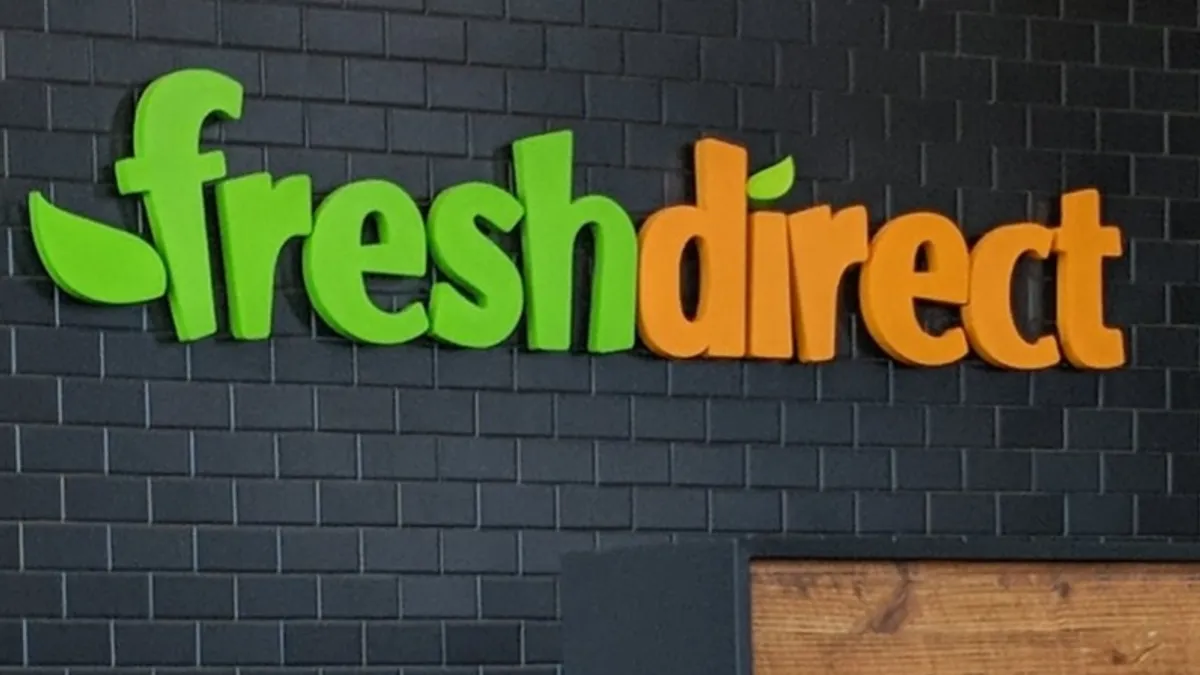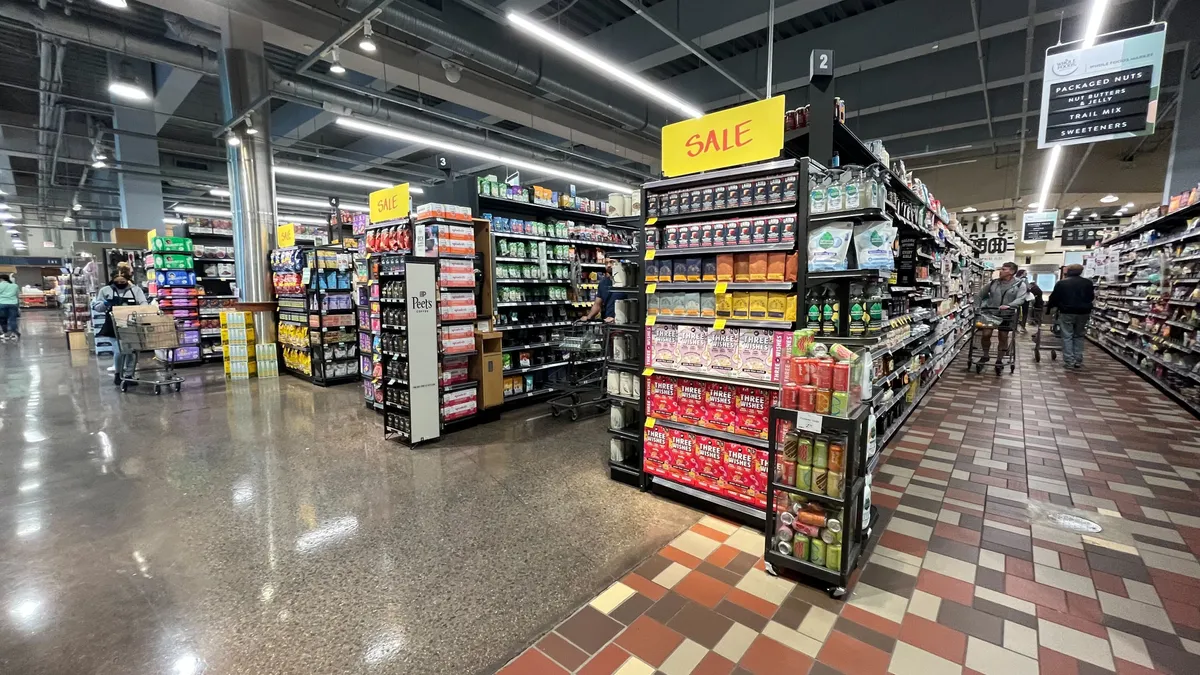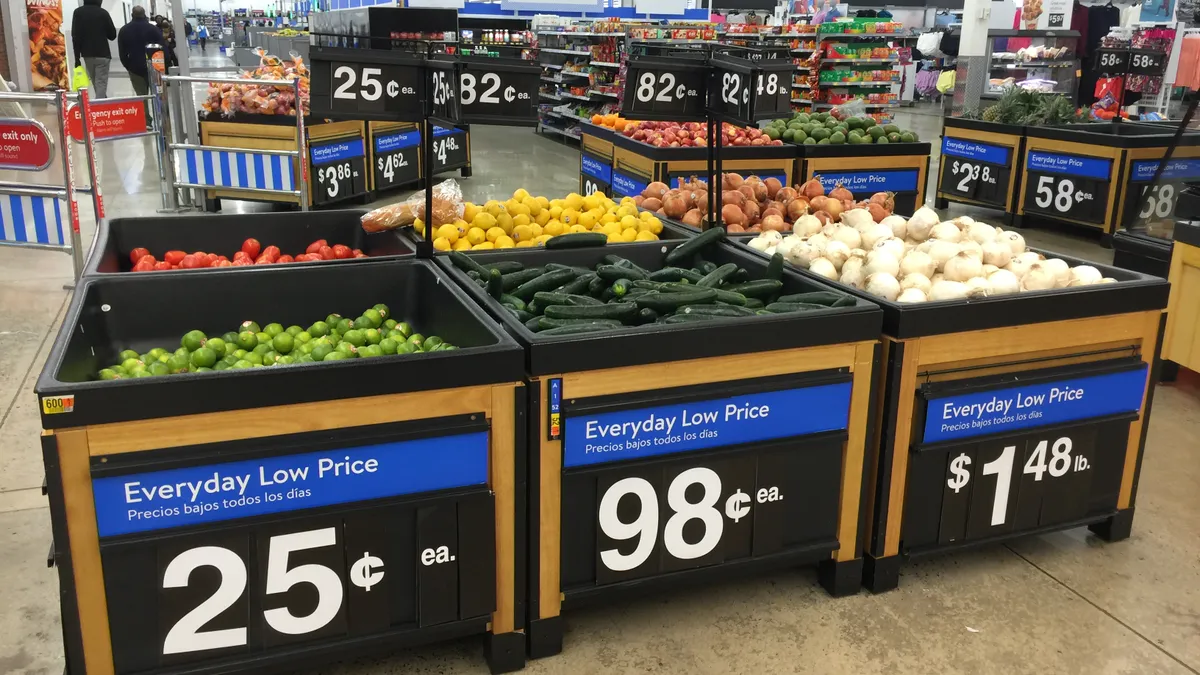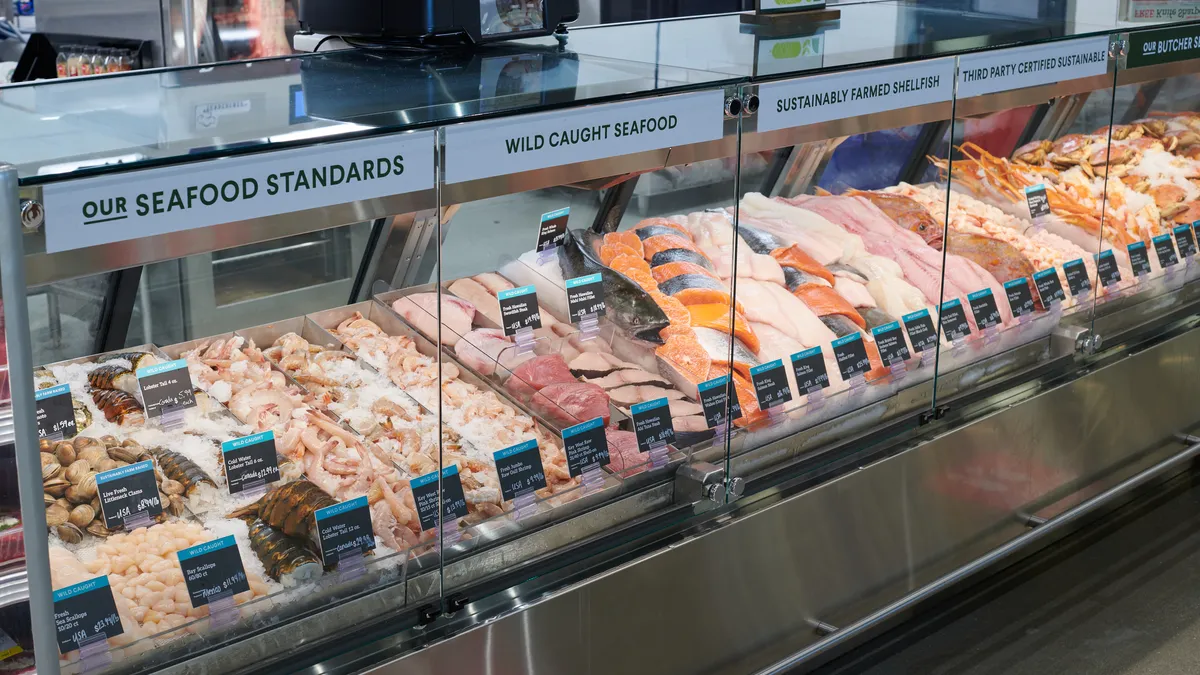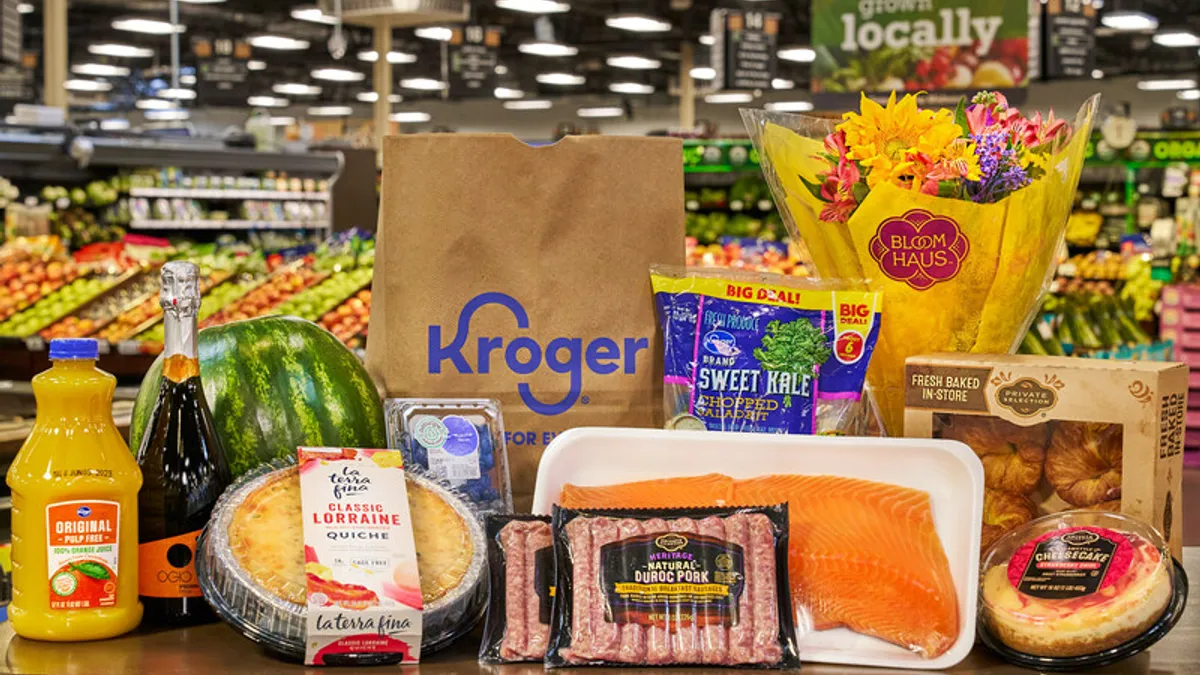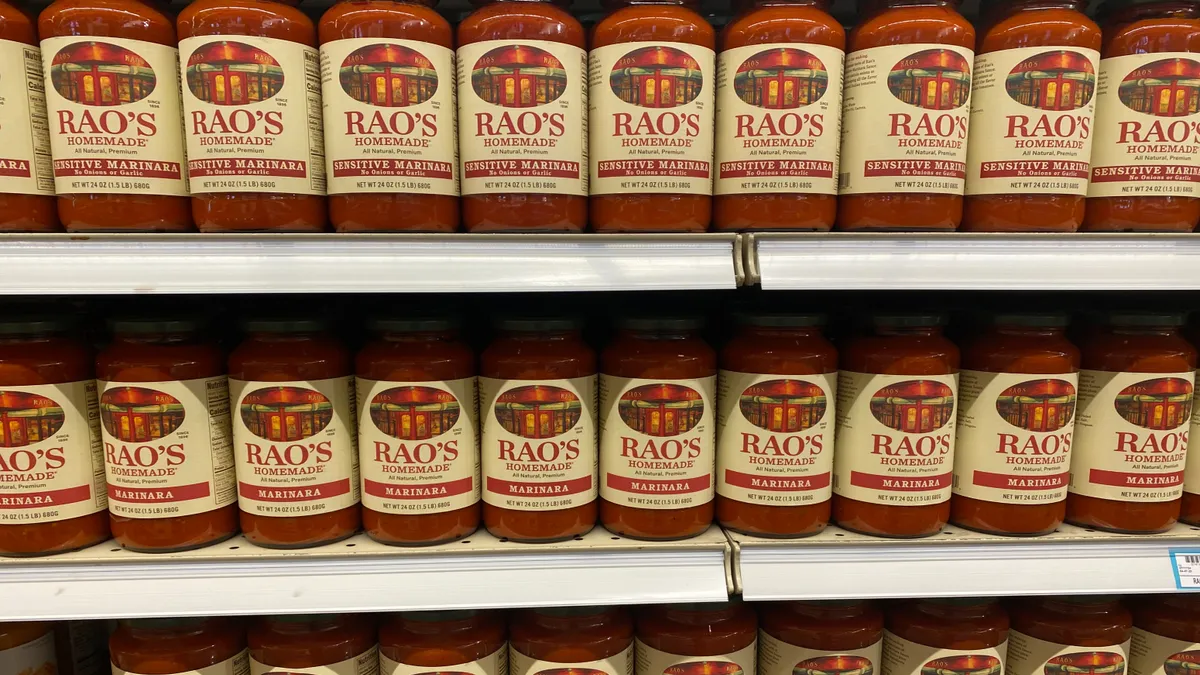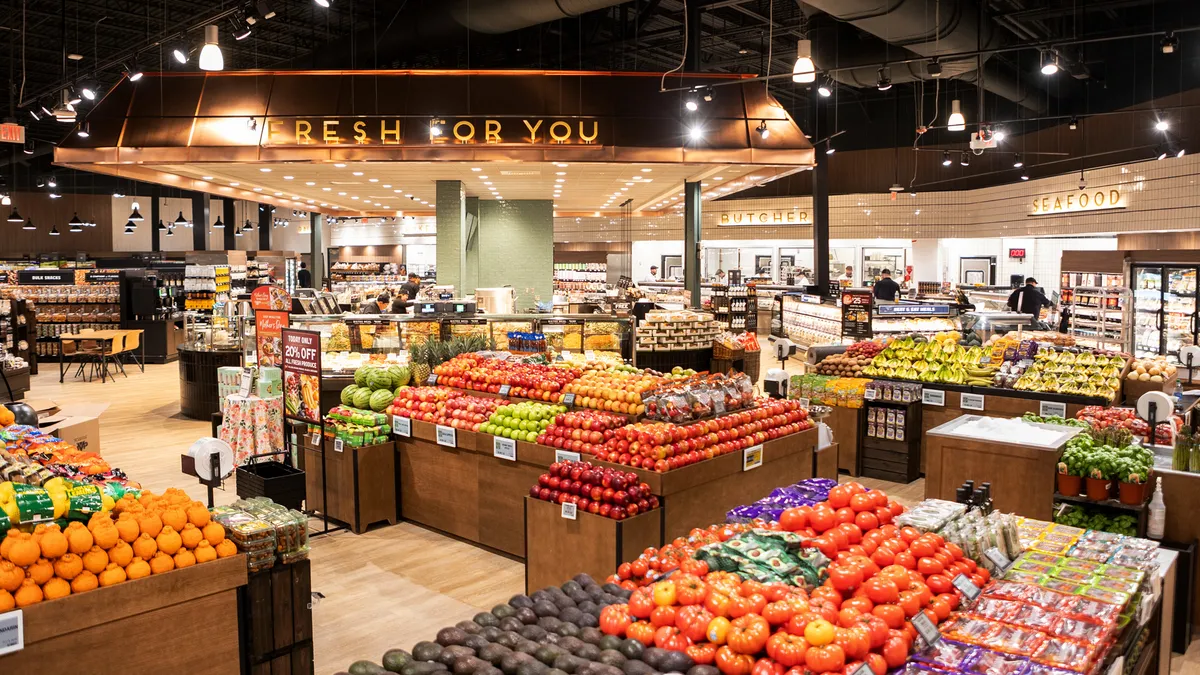NEW YORK — The French-trained chef and now CEO of FreshDirect David McInerney started his career working at Michelin-starred restaurants where he was surrounded by high-quality food. But what motivated him and company co-founder Jason Ackerman to go into the grocery industry was the lack of these restaurant-quality ingredients in supermarkets. They envisioned a company that could get those high-quality foods to consumers and disrupt established competitors.
That fresh approach helped FreshDirect, which launched its online grocery business in 1999 and its delivery arm in 2001, become a favorite among New York City's hard-to-please clientele. It's also made FreshDirect the company to unseat in the Big Apple's escalating e-grocery battle. Instacart, Peapod, Amazon and now even Walmart have moved in on FreshDirect's turf, challenging the company to stay true to its core focus of stocking the refrigerators and pantries of food-loving customers.
FreshDirect has responded by building a new state-of-the-art production facility and headquarters in the Bronx, expanding same-day service, pushing into new markets and more. And the company says it's just getting started.
"The reality is, we see ourselves as our own biggest competitor because we're constantly making promises to customers," McInerney told Grocery Dive.
A new home in the Bronx
For FreshDirect, staying on top in New York City meant saying goodbye to its longtime production facility in Long Island City and opening a new, highly automated facility in the South Bronx last year. That 400,000-square-foot facility along with the company's new corporate offices comprise what the company calls FreshDirect Campus, and are aimed at helping the grocer compete in a new era of online retailing.
Inside Fresh Direct's new headquarters, the smell of fresh oranges encompasses the second floor where corporate employees peel the fruit of the day while walking through the halls. Its research and development kitchen is stacked with soda bread, charcuterie and desserts where three to four months of testing rounds take place before products are introduced to customers.
"The reality is, we see ourselves as our own biggest competitor because we’re constantly making promises to customers."

David McInerney
CEO, FreshDirect
As the elevator doors open to the floors where production takes place, the temperature suddenly drops. The retailer keeps its 15 fresh departments at 55 degrees or lower to accommodate the produce, deli meats and seafood that are prepared on-site after being shipped from local farmers and other suppliers. To ensure freshness, produce is kept in multiple temperature sections, according to chief operating officer Tim Knoll. Oftentimes, only the last catch of the day is purchased so fish are as fresh as can be, he told Grocery Dive. To save on costs, every part of the animal is offered to consumers, and what doesn't sell is sold at a discount to restaurants, he said.
In what looks like an amusement park but is, in fact, a packing facility with nine miles of conveyor belts, workers occupy individual stations stocked with about 10 feet worth of fast-moving products. If a customer's order requires products from that section, an order tote will stop in front of the worker with a computerized message that tells the worker what products need to be added. The worker then packs the tote with the products requested and sends it off to its next stop. Prior to being loaded onto the truck to be distributed, totes are stacked according to neighborhood.
Adapting to the new facility wasn't an easy task. Shortly after its move, the retailer faced customer complaints of out-of-stocks and botched deliveries. The problems got so bad that in September, McInerney sent an email out to customers.
"I understand that the challenges we've faced have potentially eroded the trust and credibility we built with you over years of great service," he wrote. "We're focused on earning that trust back."
McInerney told Grocery Dive the company spent the better half of the summer and fall learning how to run the sophisticated arena. Combining the facility's automated capabilities with FreshDirect's sourcing model honed over many years, he said, will ultimately be an advantage for the company.
"Now that we understand [the facility], we're turning up the throttle and we're seeing good results come out of it," he said.
Expanding same-day delivery and reaching new markets
Over the years, McInerney said, e-commerce has evolved from acceptance to consumers wanting exactly what they want when they want it. To meet that demand, FreshDirect three years ago launched a separate service in New York City, FoodKick, offering a limited assortment aimed primarily at younger shoppers. Earlier this month, the company launched same-day delivery of its full assortment in Manhattan, with plans to soon push out into Westchester County and Brooklyn.
The logistical challenge of getting orders out within hours is considerable for a company built for next-day delivery. And it comes on the heels of competitors like Instacart and Amazon-owned Whole Foods offering the speedy service. The explosion of restaurant delivery through services like Grubhub and Uber Eats is also a growing threat, particularly to FreshDirect's burgeoning prepared foods business.
Just last fall, Walmart opened its own state-of-the-art Jet.com warehouse facility in the Bronx, offering same-day delivery to all of metropolitan New York City, including groceries and general merchandise.
Rather than ruminate on the competition, McInerney and chief growth officer PJ Oleksak said they're focused on FreshDirect's internal operations and expansion. Just a few weeks ago, the online grocer announced it is expanding to more areas in Washington, D.C. and Connecticut. The retailer first entered Connecticut in 2010 and the D.C. market in 2017. The two said they see considerable room to grow in D.C, in particular.
"I would say that our launch strategy in D.C. was really to just launch a very small area and start to build our brand," Oleksak said. "We were just learning and we went in pretty quiet, to be honest. We are just starting to learn the market and we are thrilled."
In these areas, FreshDirect has found no shortage of competitors, including Peapod, which is getting renewed investment and attention from parent company Ahold Delhaize. When asked about FreshDirect's performance in the suburbs relative to its city stronghold, McInerney and Oleksak said they believe those markets are under-penetrated, and cited the large basket sizes the company sees. Scheduled later this year into 2020, FreshDirect plans on expanding to D.C. suburbs in Virginia and Maryland, as well as Connecticut cities like Norwalk, Fairfield, Southport and Westport.
The grocer is also hoping to enter the Boston market sometime this year, Oleksak said.
Refining customer service to boost loyalty
Building on its advantage in fresh foods, which make up the majority of its sales at a time when many shoppers have trust issues with online grocers, will be key for FreshDirect, McInerney said. The company also continues to build out its lineup of prepared foods and Just brand private label products.
Going forward, the retailer is also emphasizing customer service. The company is rolling out a program in Manhattan that will allow customers to call FreshDirect if the time slot they want isn't available and the company will create a delivery window. If customers are unhappy with the products they receive and don't want a refund, the company will find a way to get those products to them immediately.
FreshDirect also plans on rolling out new features in Manhattan like 'Ask David,' which allows customers to email McInerney directly if they're still unhappy after contacting a company representative, and a messaging feature that will let Manhattan customers text the company with issues or questions.
"What we’re saying is, if we fall down somewhere along the way, call us and we'll make it right," McInerney said. "If we have to have someone leave here in an Uber and go to someone’s house, we’re willing to do that."
By refining its customer service techniques, expanding same-day delivery and continuing to innovate its operations, FreshDirect said it is adapting to the changing environment in grocery delivery while still adhering to five core promises it established years ago — and that are posted throughout its corporate office — including always having products in stock and quickly fixing issues that have surfaced.
"As an organization, we are constantly challenging ourselves to do what the consumer wants, go where the trends are going and figure out how we service them differently," Oleksak said.
Despite the expansions, New York's largest online grocer has no current plans to expand into brick and mortar or go public like some of its competition. The company said it plans to continue building out the core business it started twenty years ago.
"We're focused on building this business and now that we're here and it's growing, that's where our heads are at — like growing into D.C., getting into Boston, and owning the Northeast corridor," a spokesman for FreshDirect said.



